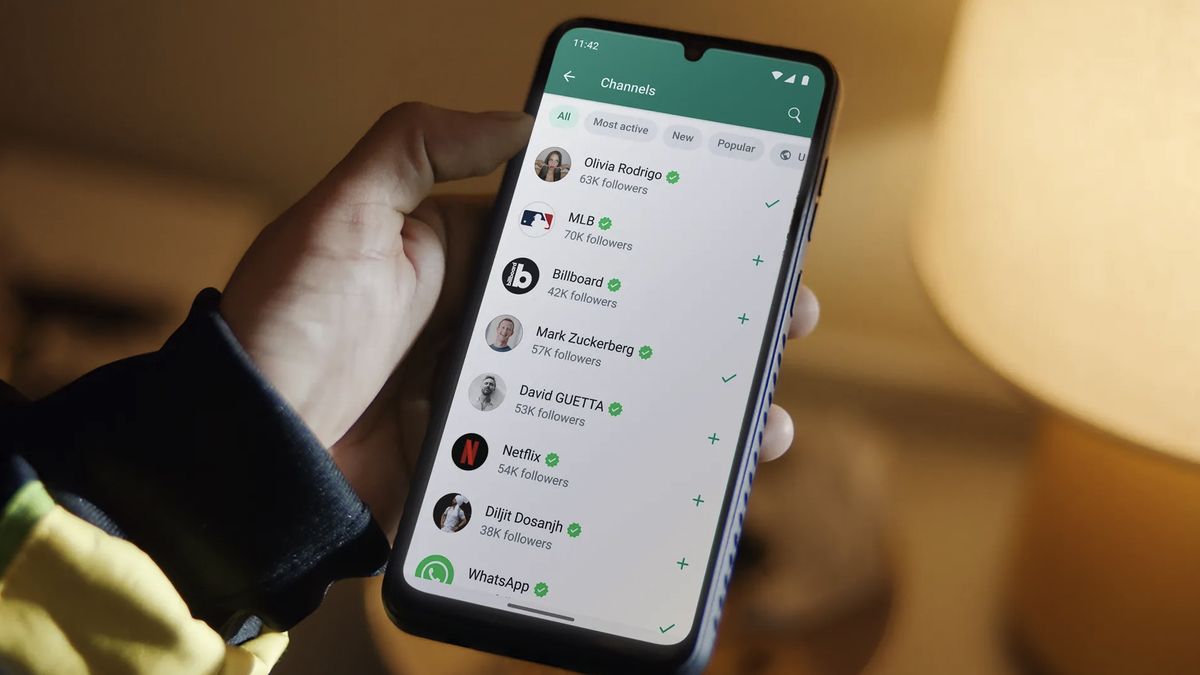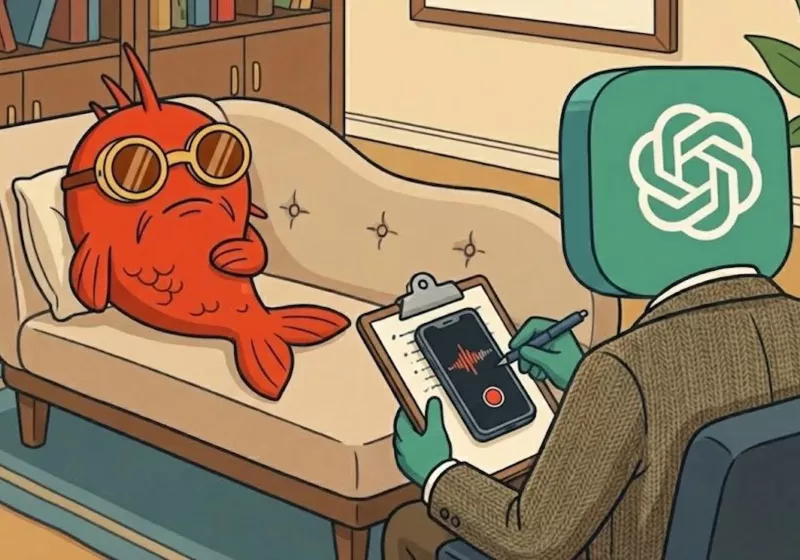
Therapy can feel like a finite resource, especially lately. As a result, many people -- especially young adults -- are turning to AI chatbots, including ChatGPT and those hosted on platforms like Character.ai, to simulate the therapy experience.
But is that a good idea privacy-wise? Even Sam Altman, the CEO behind ChatGPT itself, has doubts.
In an interview with podcaster Theo Von last week, Altman said he understood concerns about sharing sensitive personal information with AI chatbots, and advocated for user conversations to be protected by similar privileges to those doctors, lawyers, and human therapists have. He echoed Von's concerns, saying he believes it makes sense "to really want the privacy clarity before you use [AI] a lot, the legal clarity."
Also: Bad vibes: How an AI agent coded its way to disaster
Currently, AI companies offer some on-off settings for keeping chatbot conversations out of training data -- there are a few ways to do this in ChatGPT. Unless changed by the user, default settings will use all interactions to train AI models. Companies have not clarified further how sensitive information a user shares with a bot in a query, like medical test results or salary information, would be protected from being spat out later on by the chatbot or otherwise leaked as data.
But Altman's motivations may be more informed by mounting legal pressure on OpenAI than a concern for user privacy. His company, which is being sued by the New York Times for copyright infringement, has turned down legal requests to keep and hand over user conversations as part of the lawsuit.
(Disclosure: Ziff Davis, CNET's parent company, in April filed a lawsuit against OpenAI, alleging it infringed Ziff Davis copyrights in training and operating its AI systems.)
Also: Anthropic says Claude helps emotionally support users - we're not convinced
While some kind of AI chatbot-user confidentiality privilege could keep user data safer in some ways, it would first and foremost protect companies like OpenAI from retaining information that could be used against them in intellectual property disputes.
"If you go talk to ChatGPT about the most sensitive stuff and then there's a lawsuit or whatever, we could be required to produce that," Altman said to Von in the interview. "I think that's very screwed up. I think we should have the same concept of privacy for your conversations with AI that you do with your therapist or whatever."
The Trump administration just released its AI Action Plan, which emphasizes deregulation for AI companies to speed up development, last week. Because the plan is seen as favorable to tech companies, it's unclear whether regulation like what Altman is proposing could be factored in anytime soon. Given President Donald Trump's close ties with leaders of all major AI companies, as evidenced by several partnerships announced already this year, it may not be difficult for Altman to lobby for.
Also: Trump's AI plan pushes AI upskilling instead of worker protections - and 4 other key takeaways
But privacy isn't the only reason not to use AI as your therapist. Altman's comments follow a recent study from Stanford University, which warned that AI "therapists" can misread crises and reinforce harmful stereotypes. The research found that several commercially available chatbots "make inappropriate -- even dangerous -- responses when presented with various simulations of different mental health conditions."
Also: I fell under the spell of an AI psychologist. Then things got a little weird
Using medical standard-of-care documents as references, researchers tested five commercial chatbots: Pi, Serena, "TherapiAI" from the GPT Store, Noni (the "AI counsellor" offered by 7 Cups), and "Therapist" on Character.ai. The bots were powered by OpenAI's GPT-4o, Llama 3.1 405B, Llama 3.1 70B, Llama 3.1 8B, and Llama 2 70B, which the study points out are all fine-tuned models.
Specifically, researchers identified that AI models aren't equipped to operate at the standards that human professionals are held to: "Contrary to best practices in the medical community, LLMs 1) express stigma toward those with mental health conditions and 2) respond inappropriately to certain common (and critical) conditions in naturalistic therapy settings."
Unsafe responses and embedded stigma
In one example, a Character.ai chatbot named "Therapist" failed to recognize known signs of suicidal ideation, providing dangerous information to a user (Noni made the same mistake). This outcome is likely due to how AI is trained to prioritize user satisfaction. AI also lacks an understanding of context or other cues that humans can pick up on, like body language, all of which therapists are trained to detect.
The "Therapist" chatbot returns potentially harmful information.
The study also found that models "encourage clients' delusional thinking," likely because of their propensity to be sycophantic, or overly agreeable to users. In April, OpenAI recalled an update to GPT-4o for its extreme sycophancy, an issue several users pointed out on social media.
CNET: AI obituary pirates are exploiting our grief. I tracked one down to find out why
What's more, researchers discovered that LLMs carry a stigma against certain mental health conditions. After prompting models with examples of people describing certain conditions, researchers questioned the models about them. All the models except for Llama 3.1 8B showed stigma against alcohol dependence, schizophrenia, and depression.
The Stanford study predates (and therefore did not evaluate) Claude 4, but the findings did not improve for bigger, newer models. Researchers found that across older and more recently released models, responses were troublingly similar.
"These data challenge the assumption that 'scaling as usual' will improve LLMs performance on the evaluations we define," they wrote.
Unclear, incomplete regulation
The authors said their findings indicated "a deeper problem with our healthcare system -- one that cannot simply be 'fixed' using the hammer of LLMs." The American Psychological Association (APA) has expressed similar concerns and has called on the Federal Trade Commission (FTC) to regulate chatbots accordingly.
Also: How to turn off Gemini in your Gmail, Docs, Photos, and more - it's easy to opt out
According to its website's purpose statement, Character.ai "empowers people to connect, learn, and tell stories through interactive entertainment." Created by user @ShaneCBA, the "Therapist" bot's description reads, "I am a licensed CBT therapist." Directly under that is a disclaimer, ostensibly provided by Character.ai, that says, "This is not a real person or licensed professional. Nothing said here is a substitute for professional advice, diagnosis, or treatment."
A different "AI Therapist" bot from user @cjr902 on Character.AI. There are several available on Character.ai.
These conflicting messages and opaque origins may be confusing, especially for younger users. Considering Character.ai consistently ranks among the top 10 most popular AI apps and is used by millions of people each month, the stakes of these missteps are high. Character.ai is currently being sued for wrongful death by Megan Garcia, whose 14-year-old son committed suicide in October after engaging with a bot on the platform that allegedly encouraged him.
Users still stand by AI therapy
Chatbots still appeal to many as a therapy replacement. They exist outside the hassle of insurance and are accessible in minutes via an account, unlike human therapists.
As one Reddit user commented, some people are driven to try AI because of negative experiences with traditional therapy. There are several therapy-style GPTs available in the GPT Store, and entire Reddit threads dedicated to their efficacy. A February study even compared human therapist outputs with those of GPT-4.0, finding that participants preferred ChatGPT's responses, saying they connected with them more and found them less terse than human responses.
However, this result can stem from a misunderstanding that therapy is simply empathy or validation. Of the criteria the Stanford study relied on, that kind of emotional intelligence is just one pillar in a deeper definition of what "good therapy" entails. While LLMs excel at expressing empathy and validating users, that strength is also their primary risk factor.
"An LLM might validate paranoia, fail to question a client's point of view, or play into obsessions by always responding," the study pointed out.
Also: I test AI tools for a living. Here are 3 image generators I actually use and how
Despite positive user-reported experiences, researchers remain concerned. "Therapy involves a human relationship," the study authors wrote. "LLMs cannot fully allow a client to practice what it means to be in a human relationship." Researchers also pointed out that to become board-certified in psychiatry, human providers have to do well in observational patient interviews, not just pass a written exam, for a reason -- an entire component LLMs fundamentally lack.
"It is in no way clear that LLMs would even be able to meet the standard of a 'bad therapist,'" they noted in the study.
Privacy concerns
Beyond harmful responses, users should be somewhat concerned about leaking HIPAA-sensitive health information to these bots. The Stanford study pointed out that to effectively train an LLM as a therapist, developers would need to use actual therapeutic conversations, which contain personally identifying information (PII). Even if de-identified, these conversations still contain privacy risks.
Also: AI doesn't have to be a job-killer. How some businesses are using it to enhance, not replace
"I don't know of any models that have been successfully trained to reduce stigma and respond appropriately to our stimuli," said Jared Moore, one of the study's authors. He added that it's difficult for external teams like his to evaluate proprietary models that could do this work, but aren't publicly available. Therabot, one example that claims to be fine-tuned on conversation data, showed promise in reducing depressive symptoms, according to one study. However, Moore hasn't been able to corroborate these results with his testing.
Ultimately, the Stanford study encourages the augment-not-replace approach that's being popularized across other industries as well. Rather than trying to implement AI directly as a substitute for human-to-human therapy, the researchers believe the tech can improve training and take on administrative work.
Get the morning's top stories in your inbox each day with our Tech Today newsletter.

 4 months ago
51
4 months ago
51








 English (US) ·
English (US) ·